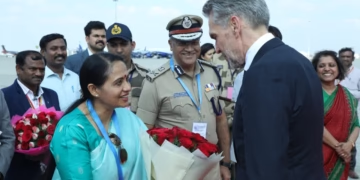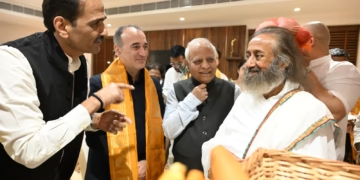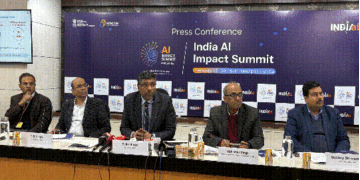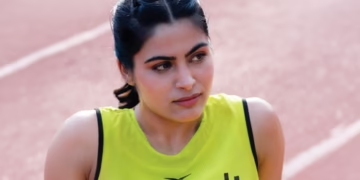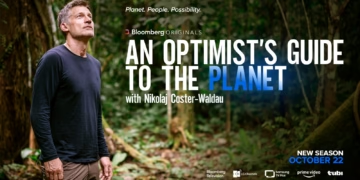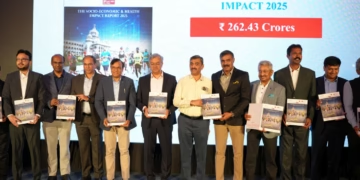EXCERPTS FROM THE RCB PODCAST – MINDSET OF A CHAMPION FT. VIRAT KOHLI
On his connection with RCB 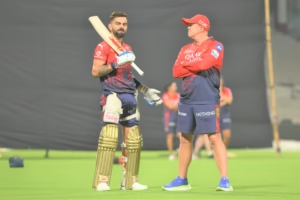
“For me, what’s more valuable is the relationship and the mutual respect that has been created over so many years (with RCB). And I’m just going to say it now, whether we win or we don’t win, it’s fine. This is my moment. The love that I’ve received from the fans, I don’t think any silverware, or any trophy can come close to that because the impact of that love from people hits you very different to winning something and the next morning it’s all gone. This, I feel, will stay with me for life.”
On moving away from a captaincy role
“At one point, it did become tough for me because there was just too much happening in my career. I was captaining India for a period of 7-8 years. I captained RCB for 9 years. There were expectations on me from a batting perspective every game that I played. I didn’t have this sense that the attention was off me. If it wasn’t captaincy, it would be batting. I was exposed to it 24×7. It did get very tough on me, and it did get too much in the end. That’s why I stepped down because I felt like if I’ve decided I want to be in this place, I need to be happy. I need to have a space in my life where I can just come and play my cricket without being judged, without being looked at as what are you going to do this season and what’s going to happen now.”
Mark Boucher’s impact
“Mark Boucher had the biggest impact on me as a young player. He was the only one who came in with the mindset to genuinely help young Indian players. He identified my weaknesses without me even asking and said, ‘You need to work on the short ball, no one will give you a chance in international cricket if you can’t pull.’ He kept working with me relentlessly, and I started improving. I still remember him telling me, ‘If I come to commentate in India four years from now and don’t see you playing for India, you’d be doing a disservice to yourself.’ That really pushed me to keep getting better.”
On breaking into the Indian team and the guidance from Gary Kirsten and MS Dhoni
“I was very realistic about my abilities. Because I had seen a lot of other people play. And I did not feel like my game was anywhere close to theirs. The only thing that I had was determination. And if I wanted to make my team win, I was willing to do anything. That was the very reason I got chances to play for India initially. And Gary and MS made it very clear to me that we are backing you to play at number three. This is what you can do for the team. What you represent on the field, your energy, your engagement, is of the biggest value to us. We want you to play that way. So, I was never looked at as this outright match winner who can change the game from anywhere. But I had this thing, I’m going to stay in the fight. I’m not going to give up. And that is what they backed.”
On dealing with the fear of failure
“What happens when you’re young is you feel like, if I have scored X amount of runs by the time I’m this age or whatever, things will ease out. It never happens like that. And that is the marker actually. When you stop feeling that nervousness or that anticipation of how things are going to unfold is when people say that you’re done. So that never goes away from you because that very energy is what keeps you engaged to do what you need to do in that moment, in that present moment. I’ve tried this on a few occasions where I’ve been all over the place and then I would decide, you know what? I’ve scored these many runs and these many hundreds and I’m going to walk out thinking that – but it makes no difference. I’ve always told youngsters as well, it doesn’t matter whether I’ve played 130 Test matches or 300 ODIs. If you’ve played two and your mindset is better than mine on the day, you will perform better than me on the day.”
On the allure of ODI cricket
“The beauty of one-day cricket, and a lot of people realised that in the Champions Trophy as well, is that you need to bring in all facets of your game to be successful in ODI cricket. You need to have patience. You need to have the explosive game. You need to have stamina. You need to have that intensity, especially while fielding, because it’s not a format that’s running slow. You must keep presenting the T20 intensity over a period of 50 overs. So, you need a certain physical preparation.”
On the change in mindset of modern players
“We grew up on one-day cricket, in a time when there were no restrictions, and the ball was reversing after 35 overs, and you still had to find a way to score. So, we grew up focusing on a lot of strike rotation and handling pressure. Then we had to evolve to the explosive game that these guys have today. It’s a give and take. You must learn from each other’s skills to eventually make your game well-rounded, so you can perform in different situations.”
On the role of physical preparation
“Inside the 30-yard circle, how you field, how you stop singles, are you able to move well as a fielder in a hot spot and you stop two singles here and you stop a single there and the guy goes for a big shot. This thing will never be highlighted. But the kind of pressure you can create as a fielder through the middle overs, for that, you need physical preparation. Every ball, same intensity for 40 overs. It doesn’t come on the day. It comes with the work that happens off the field. How you eat, how you sleep, how you train, how well you are prepared physically.”





